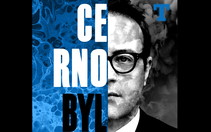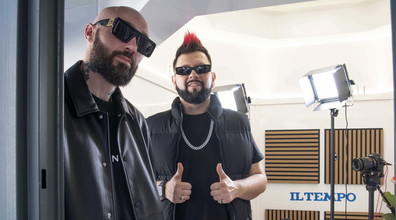
Cancro, test sangue per diagnosi precoce su 50 tumori

(Adnkronos) - Un test sul sangue per scoprire 50 tipi di cancro con diagnosi precoce prima che si manifestino i sintomi della malattia. E' l'obiettivo del test Galleri, lanciato in Inghilterra dal servizio sanitario. L'NHS ha avviato l'iter per reclutare 140.000 volontari in 8 aree del paese. L'analisi del campione di sangue mira ad individuare, con diagnosi precoce forme di cancro che vengono individuate quando la malattia è spesso già in fase avanzata: nel mirino i tumori al cervello, all'intestino, al pancreas, alla gola.
Il test si basa sull'analisi del Dna nel sangue per individuare l'eventuale presenza di cellule tumorali. Galleri mira a rilevare i cambiamenti chimici in 'porzioni' di Dna privo di cellule che dai tumori arrivano nel flusso del sangue.
L'NHS sta inviando lettere a decine di migliaia di cittadini di età compresa tra i 50 e i 77 anni per avviare lo studio. I partecipanti non dovranno aver ricevuto una diagnosi di cancro negli ultimi 3 anni. Dopo il primo prelievo di sangue, torneranno dopo 12 mesi e dopo 2 anni per fornire ulteriori campioni. I primi dati sono attesi nel 2003 e, in caso di risultati incoraggianti, il programma potrebbe essere ampliato a un milione di persone nel 2024 e nel 2025.
diagnosed at the earliest stage typically has between five and 10 times the chance of surviving compared with those found at ‘stage four.'
Health and Social Care Secretary Sajid Javid said: “The UK's world leading scientists continue to pioneer innovative cancer diagnosis and treatments so our brilliant NHS staff have the tools to spot the disease as early as possible and give people the care they need.
“Early diagnosis can save lives and this revolutionary new test can detect cancers before symptoms even appear, giving people the best possible chance of beating the disease.
“Ensuring fewer people need treatment for advanced cancer is vital for patient care and another example of the NHS innovating to be more efficient – which will be crucial in bringing down the backlog.”
Prof Peter Sasieni, Director of The Cancer Research UK & King's College London Cancer Prevention Trials Unit and one of the trial's lead investigators, said: “We need to study the Galleri test carefully to find out whether it can significantly reduce the number of cancers diagnosed at a late stage. The test could be a game-changer for early cancer detection and we are excited to be leading this important research.
Cancer screening can find cancers earlier when they are more likely to be treated successfully, but not all types of screening work.”
The NHS-Galleri study is a Randomised Control Trial (RCT) – meaning that half the participants will have their blood sample screened with the Galleri test right away and the other half will have their sample stored and may be tested in the future. This will allow scientists to compare the stage at which cancer is detected between the two groups.
People will only know they're in the test group if they are among the small minority whose test detects potential signals of cancer in their blood. These people will be contacted by the trial nurse by phone and referred to an NHS hospital for further tests.
All participants will be advised to continue with their standard NHS screening appointments and to still contact their GP if they notice any new or unusual symptoms.
Sir Harpal Kumar, President of GRAIL Europe, said: “We're delighted to partner with the NHS to support the NHS Long Term Plan for earlier cancer diagnosis, and we are eager to bring our technology to people in the UK as quickly as we can. The Galleri test can not only detect a wide range of cancer types but can also predict where the cancer is in the body with a high degree of accuracy. The test is particularly strong at detecting deadly cancers and has a very low rate of false positives.”
Stuart Devereux, a serving fire brigade officer, will be among the first participants in the NHS-Galleri trial in Runcorn. He said: “Being able to contribute to this study that could save many lives was a very easy decision to make, and it's not going to take up much of my time. Working in the fire service, we save lives by preventing rather than fighting fires and in a similar way I'm keen to be involved in helping the NHS to trial new technology that can detect cancer before symptoms appear. We will only make progress in tackling cancer if people come forward for trials like this.”
Dai blog

Boomdabash: "Una legge contro la violenza sui social"


Lazio, ora la scossa deve darla anche Lotito


Beyoncé e Taylor Swift: perché le regine del pop finiscono nella bufera






